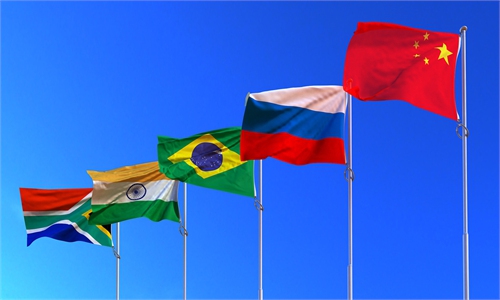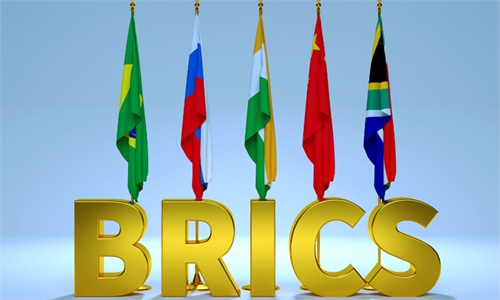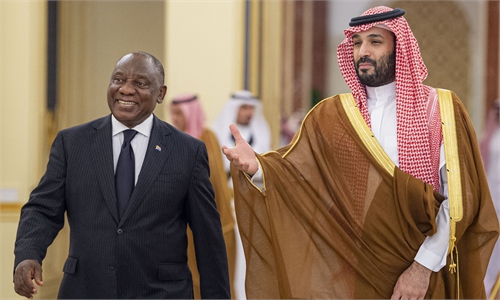
BRICS Photo:VCG
The members of the BRICS (Brazil, Russia, India, China and South Africa) need to explore the feasibility of jointly building a regional rating system, a market insider said on Thursday, which could better assess corporate creditworthiness and reduce the financing costs of their enterprises.
The suggestion came against the background of the current international rating systems led by Western rating agencies. The relatively low sovereign ratings of emerging market economies have influenced the ratings of BRICS issuers, which don't reflect their credit standing objectively, Huo Zhihui, director of the technical methodologies department of China Bond Rating told the Global Times.
The financial markets of the BRICS countries have already provided some of the conditions for jointly building a shared rating system, Huo said. BRICS countries have shown their strong influence in promoting global economy, and their bond markets have expanded rapidly and had a growing influence in the international market.
The BRICS need to discuss promoting mutual recognition of their own credit rating regimes and build a shared rating system that better fits their economic conditions, he added.
Despite rising uncertainties, BRICS nations have made remarkable achievements in cooperation, helping to promote common development and a global economic recovery.
The BRICS represents about 40 percent of the global population and accounts for about 25 percent of the global economy, the Xinhua News Agency reported in June.
With an average annual growth rate of over 10 percent, the BRICS' bond markets have rapidly expanded and shown a growing influence in the international market, Huo said.
The rapid development of their bond markets has provided broad space for the BRICS economies to carry out cooperation in credit ratings, market watchers said.
In 2021, the share of investment-grade offshore bonds increased to more than 60 percent of all offshore bonds. However, Chinese issuers still have to bear higher interest rates compared with issuers of the developed countries, he added.



